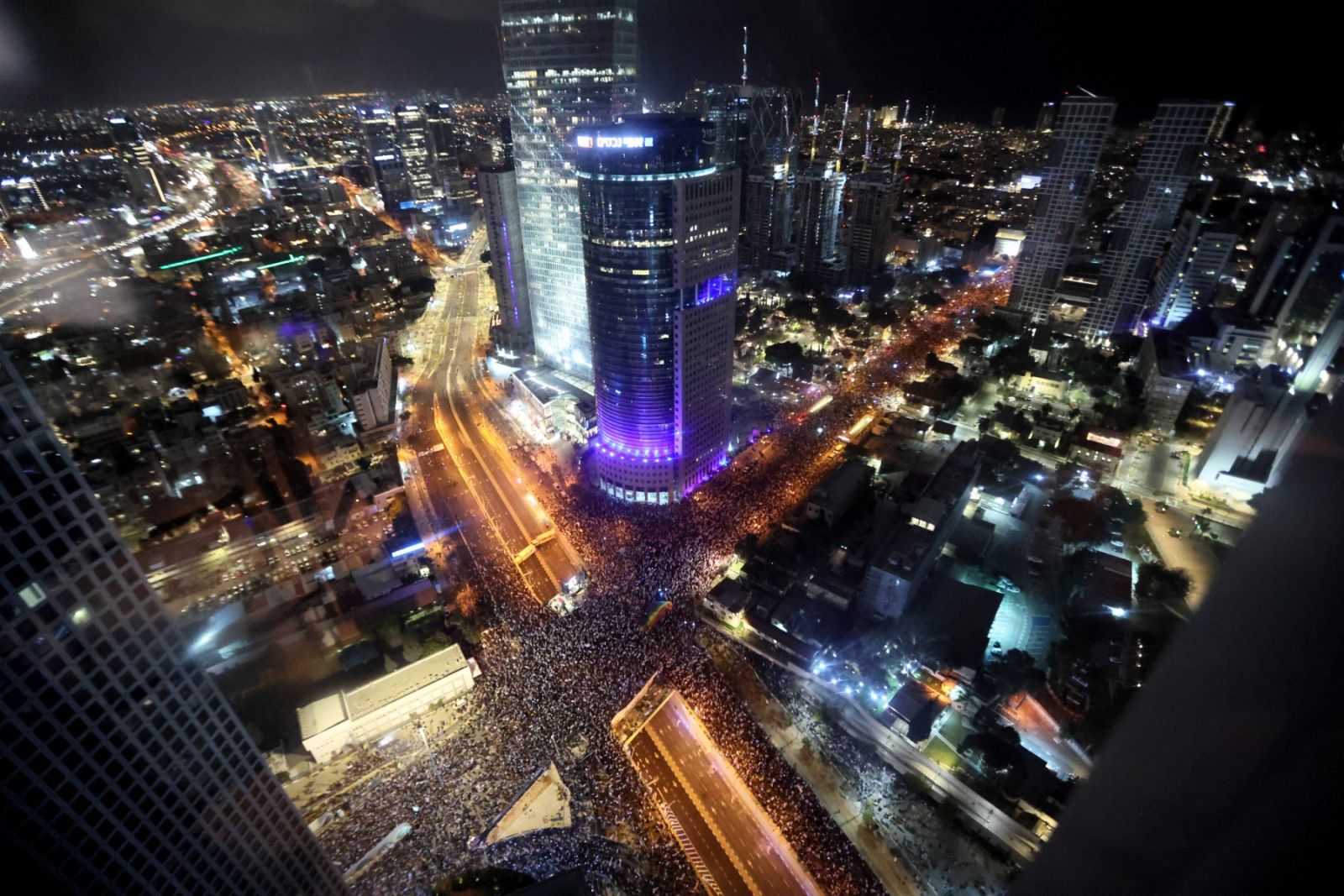ALBAWABA - Hundreds of thousands of Israelis took to the streets once again in a strong display of dissent against the judicial reform proposed by Prime Minister Benjamin Netanyahu's coalition government.
The proposed reform, aimed at restricting the powers of the judiciary, has been met with weeks of ongoing protests across the country.
In cities such as Tel Aviv, West Jerusalem, Haifa, Be'er Sheva, and Rehovot, large-scale demonstrations attracted massive crowds. Tel Aviv alone saw over 150,000 protesters voicing their opposition.
The vibrant protests unfolded in front of the Government Complex on Kaplan Street in Tel Aviv, where participants fervently expressed their concerns. Banners, placards, and images criticizing right-wing politicians in the coalition government were prominently displayed, along with Israeli flags.

Leaders from various sectors joined the protests, including retired Lieutenant Colonel Ron Sharf, a prominent figure in the "Silah Arkadaşları" (Arms Comrades) group, comprising reserve soldiers opposed to the judicial reform.
Opposition leaders also rallied in solidarity with the protesters, delivering speeches in different parts of the country.

Simultaneously, thousands of demonstrators marched near Netanyahu's residence in West Jerusalem, symbolizing their dissatisfaction with the government's direction.
The proposed judicial reform, announced earlier this year by Minister of Justice Yariv Levin, seeks to limit the powers of the Supreme Court and increase governmental influence in judicial appointments.
Following the announcement of a postponement earlier, Netanyahu recently confirmed the government's intention to revisit the judicial reform after the passage of the 2023-2024 budget. Negotiations between the coalition government and the opposition have reached an impasse, prompting the government to intensify its efforts to advance the reform agenda.
As public dissent continues to grow, the government faces mounting pressure to address the concerns of its citizens and engage in meaningful dialogue to address the issues surrounding judicial reform.










